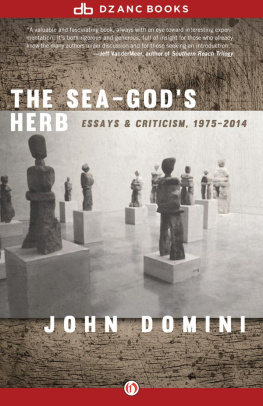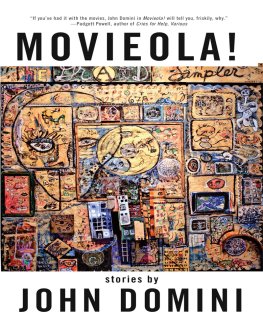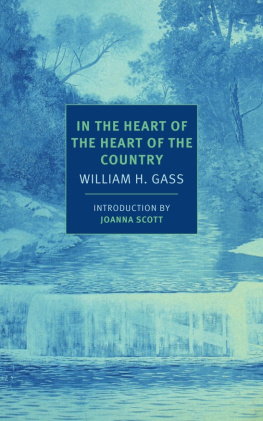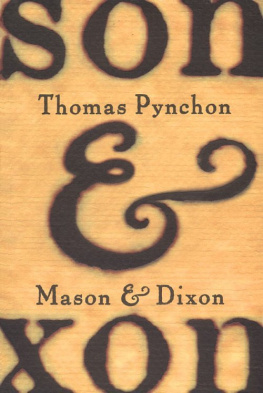The Sea-Gods Herb
Essays & Criticism: 19752014
Nathan Deuel

All rights reserved, including without limitation the right to reproduce this ebook or any portion thereof in any form or by any means, whether electronic or mechanical, now known or hereinafter invented, without the express written permission of the publisher.
These essays first appeared, in slightly different form, in the following publications: Aeon Magazine, Al Jazeera America, The Awl, GQ, Los Angeles Review of Books, The Morning News, The National (U.A.E.), The New Republic, Salon, Slate, St. Petersburg Review, and Virginia Quarterly Review.
Book design: Steven Seighman
Cover image: Ugo Rondinone, soul, at Gladstone Gallery, Manhattan, NY, summer 2013. Photo by John Domini.
Copyright 2014, text by John Domini
ISBN: 978-1-4976-5481-5

This project is supported in part by awards from the National Endowment for the Arts and Michigan Council for Arts and Cultural Affairs.
Dzanc Books
1334 Woodbourne Street
Westland, MI 48186
www.dzancbooks.org

Distributed by Open Road Integrated Media, Inc.
345 Hudson Street
New York, NY 10014
www.openroadmedia.com

Three Editors:
Kit Rachlis weekly,
Willard Spiegelman quarterly,
Joe Amato, starting every other month.
CONTENTS
THE SEA-GODS HERB: ESSAYS & CRITICISM, 1975-2014
Preface
No honest assessment of what this books about can ignore the vagaries of my DNA. Why should I take time and energy to write about contemporary literature, and other artforms, when what I care about most is bringing off imaginative work of my own? I can offer a rationale, to be sure. I can claim that the essays and reviews hereselected from a far larger assortment of publicationsamount to an argument on behalf of latter-day non-traditional storytelling. That argument has been revised and re-revised for the sake of this book, though it went through many a revision, up late and up early, back when the pieces first appeared. Nevertheless, now when I look the effort over and ask myself why, some part of my answer must be a shrug. Thats the way the helix doubles.
On top of that, I can get behind the usual complaints about putting in time as a critic. Writers engaged in creative efforts often grumble about how higher impulses get diffused when they have to generate the low-level noise of a book review. Consider, for instance, two compendiums of such stuff from two radically different sensibilities, John Updike and Gilbert Sorrentino. These writers couldnt have stood farther apart on most matters, but they shared a dismissive attitude toward critique and commentary. In Updikes introduction to Picked-Up Pieces (1975), he claims that what he feels for the utmost favorites of his reviews and such is no better than a step-emotion compared with his pride in anything creative. Sorrentinos Preface to Something Said (1984) concludes that the job is a strange enterprise and one that I am happy to be involved in only at its periphery.
I honor my elders. Ive got a couple of essays on Sorrentino here. As for Updike (and with all due respect for the bulging 70s scrapbook Rabbit is Rich and the bite of the Bech stories), he never needed my help. Its the idea of help, you see, that drives the critic and essayist in me, when everythings said and done. Misgivings about the role may be hard-wired into my personality and buttressed by my reading, yet at the same time this argument keeps coming up. It keeps yanking me to the desk: a brief on behalf of the most modern and post-modern. Such work has been so badly understood that I feel I can be useful.
This sense of the useful, once upon a time, was spurred by critic-cum-novelist models. A single example will do: Robert Coovers thoughtful celebration of Samuel Beckett, The Last Quixote. The essay appeared in New American Review in 1971 and opened with a sober challenge: It is difficult to do this thing, to speak of Beckett. I read the piece even as I lay stunned across the floor by Coovers Pricksongs & Descants, and I discerned a fascinating line of thought within those central words, this thing. In them, I detected an intuition about the present: Coovers thing was of the moment, and therefore difficult to speak of while still in the moment. Certainly The Last Quixote helped me suss out a few of Becketts secrets, yet its greater gift may have been the essayists openness to the timeless wallop of fiction, even when ancient business like identification or event or catharsis takes improbable new shape. Ever since, blocking the inroads of cynicism the best I can, Ive taken up new story surrogates with faith.
Transformation would be another word for it, a word that gives me my title. The source is Dante, the first Canto of Paradiso, which begins a lot like Coover on Beckett. It begins in doubt, as the Poet frets that he can never get across the wonders hes seen. He must trasumanar, transhumanize, in the Divine Comedys distinguishing neologism. Yet his guide Beatrice helps him achieve this altered state with a single long look:
Gazing at her, I felt myself becoming
what Glaucus had become tasting the herb
that made him like the other sea-gods there.
The translation is Mark Musas, but the myth referred to remains the same in any idiom. A fisherman notices that a certain shore grass revives his dead catch and so he tries the stuff himself; he becomes a god. Whats more, Glaucus stays that way. He gets no comeuppance, making miracles and collecting lovers. Ovid, Dantes source, no doubt took pleasure in how the story upset expectation.
My own pleasure in the Comedy can also be found here in Sea-God. I believe that my explorations of Dante belong with the project Ive just outlinednamely, a definition and celebration of the postmodern. Thats Sorrentinos strange enterprise for you. If I sound glib, Im not sure I should apologize, because any honest critic has to recognize how his or her arguments can become glib, a kind of shrink-wrap that risks suffocating the artwork under consideration. Granted, the most thoughtful review or essay will have an ameliorative impact, correcting misapprehension and enlarging the perception of beauty. Thats the best outcome, and we have a good handful of happy examples. Where would Jackson Pollock and the Abstract Expressionists have been without their champion, Clement Greenberg? Nevertheless, essays and reviews also make some particular impact on creator, object, and aesthetic. The good critic works out of his hand just as the artist works out of his, and that hand leaves its own recognizable print. Mine reveals ancient narrative structures and satisfactions in contemporary storytelling. Not a bad revelation, perhaps, but by the same token, Sea-God has its limits too, and will in time tumble into one general consensus or another. Oh, Domini, theyll say, c. 2095, hes one of those whos always chasing ecstasy and archetypes. So be it. Anyway, I should be so lucky as to last that long, and for better or for worse thats why my Dante investigations belong. Therefore, too, the text as a whole amounts to a defense of artists taking chances.
This defense owes something to other theorists, naturally. With Karl Marx, it posts a manifesto against the industrial product that generally occupies the U.S. bestseller lists. I also detect Mikhail Bahktin and his carnival, Jacques Derrida and his grammatology. Still, my defense of the imagination intends to go beyond trends in analysis. It goes to the basic health of the storyteller. The ecstasy of narrative, an ecstasy gained by prevarication and sleight of hand, can be reached also in works that seem to reject such satisfaction. Artists cavalier about old-time novelistic virtues, like Carole Maso, share common purpose with those like Richard Powers, who have a clear reliance on the sturdy familiars of plot and character and so forth. Such a sharing, tricky to detect but central to the reading, defines the second, more important way in which my reconsideration of the
















